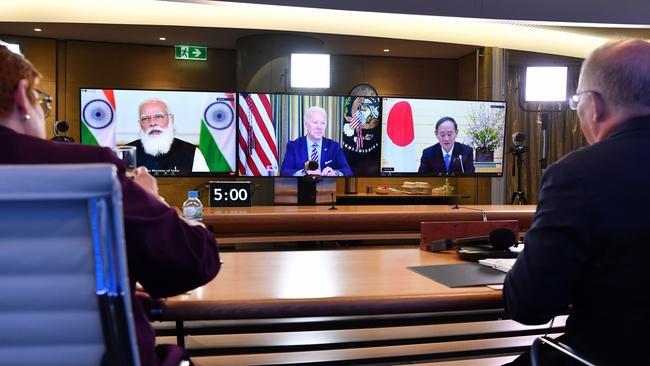
For, along with the Quad summit that Joe Biden hosted last year, this is one of the most important single meetings in making the Quad an enduring and important reality in the Indo-Pacific. US Secretary of State Antony Blinken, in remarks during the flight to Australia, said the Quad was “becoming a powerful mechanism”. He cited its work in delivering vaccines, as well as getting the four nations to collaborate on emerging technologies and “strengthening maritime security to push back against aggression and coercion in the Indo-Pacific region”.
Gathering the foreign ministers of the US, India, Japan and Australia in Melbourne for these purposes is powerful in itself. As well as their joint discussions, they will all have bilateral meetings with Marise Payne and will all meet Scott Morrison. They will also have bilateral meetings with each other. All big government systems are driven by what the principals choose to spend their time on. The Quad has arrived.
Well-informed sources tell me it was Blinken himself who determined to come to Australia personally in the middle of the Russia-Ukraine crisis. This action alone carries three messages. First, despite the Russia crisis, Washington is committed to the Indo-Pacific and can do more than one thing at a time. Second, the US has made a big political and diplomatic investment in the Quad. And third, the Biden administration is also emphasising the bilateral US-Australia relationship.
The Quad in its modern form is a response to China’s heightened aggressiveness since Xi Jinping became president. It offers the region positive, non-Beijing alternatives in areas such as vaccines and infrastructure. It’s not a military alliance but does pursue enhanced security. That it is an association of four great democracies is something we should be proud of.
This Quad will also have something to say about Russia and Ukraine. A lot of fairly ridiculous excuses are being offered for Moscow’s aggression by people who always seem to think that in any conflict between a Western democracy and a dictatorship, the democracy must be at fault.
One nation that understands profoundly that this is not true is Lithuania. Right now it occupies a unique position in the global jigsaw of power and pressure. It took the “shocking” step of allowing Taiwan to open a trade and cultural office, of the type it has in Australia and many other countries, under its preferred name of Taiwan, whereas Beijing has decreed that it must use only the name of its capital city, Taipei. Lithuania has been subject to shocking economic and diplomatic coercion by Beijing as a result.
Lithuania also borders Russia and was for a time a conquered nation within the Soviet Union. (It is a particular infamy of the hapless foreign policy of the Whitlam government in the early 1970s that Canberra for a time extended de jure recognition of Soviet sovereignty over the Baltic nations, including Lithuania. This, of course, was not only morally odious but had to be reversed, demonstrating the severe limits, and traps, of pro-bully, faux-sophisticated realism in foreign policy. But I digress.)
On Wednesday I had a long discussion with Lithuanian Foreign Minister Gabrielius Landsbergis who, in this season of diplomatic prodigy, is also visiting Australia. Lithuanians know a thing or two about being pushed around by bullies. So he sees clearly the Quad’s significance: “The Quad is a format that’s very much needed and sends just the right message. Over time it will be harder and harder for countries like China to find single countries that they can bully.”
Landsbergis, like the Quad members themselves, understands that while each nation focuses on its key national interests, what happens in Europe affects Asia, and what happens in Asia affects Europe.
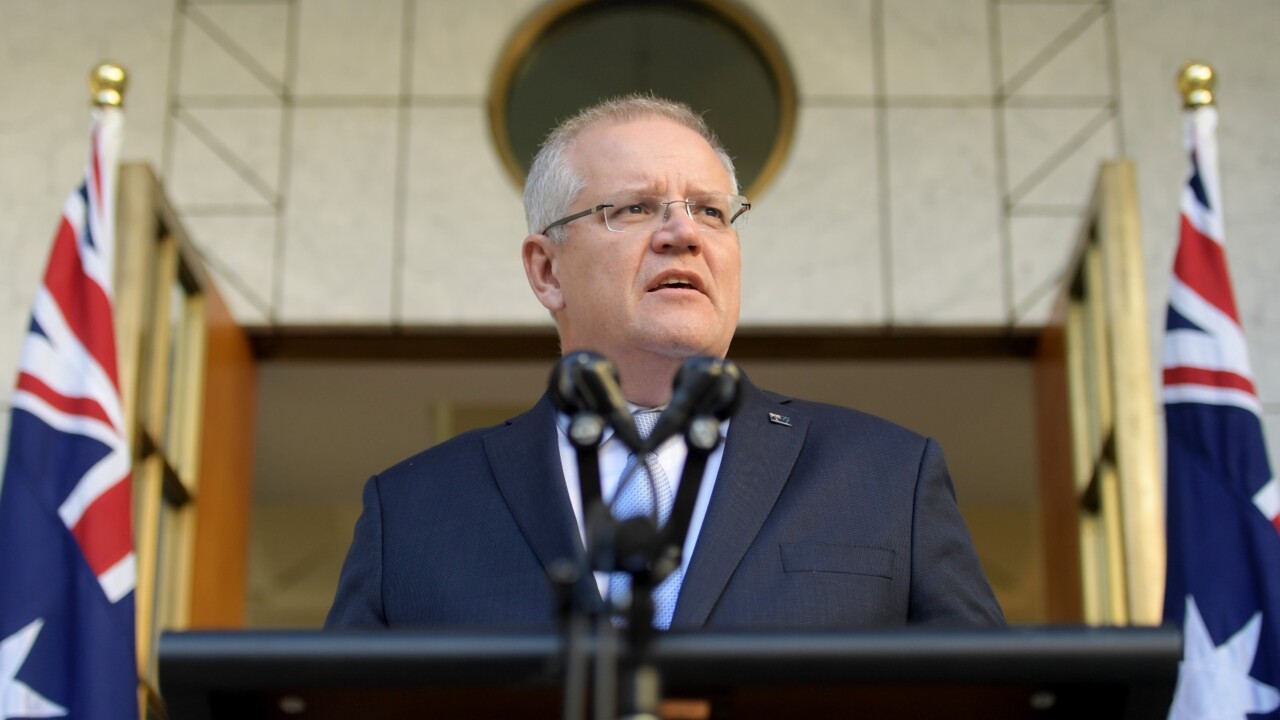
He says Australia and Lithuania both belong to an exclusive club, nations suffering economic coercion from Beijing because of principled political stands. But the club is growing. The sensible response is that like-minded nations band together because it’s much harder to bully a group of nations than just one nation on its own.
Landsbergis told me: “We feel a certain level of responsibility to create and strengthen a bloc of non-authoritarian powers, like Lithuania and Australia. This is needed when the old communist nations band together to bully their neighbours.”
He is concerned about the increased co-operation of China and Russia: “What we are seeing is both countries increasingly presenting themselves as disrupters of the rules-based international order. There is a natural attraction between the two, but also some tensions. I don’t think China is completely happy about what Russia is doing on Ukraine’s borders.”
He does not accept the all-too-convenient alibi for Russian aggression, that this was caused by NATO expansion or by other disagreeable moves by the West. Instead, he points out, NATO is a defensive alliance. It is absurd for Russia to fear it will be attacked by nearby NATO members such as Lithuania or Estonia. In fact, in Lithuania’s case, he thinks, it is NATO membership that has acted as a deterrent to Russia taking the kind of aggressive actions it is directing at neighbours such as Ukraine, Georgia, Moldova and others.
However, he thinks the dictatorships are overplaying their hands. In particular, he believes Beijing can now recognise that it is its own actions that are causing new groups to emerge – such as the Quad – that will resist Beijing’s aims. In other words, it is the very act of bullying that is bringing about international solidarity and push-back among other nations.
Nonetheless, the immediate danger from Russia is very great: “We have a high level of certainty that Russia has almost everything it needs for an attack on Ukraine. We’re very worried about the situation. We have to be very serious about the measures we would take in response. We have to be clear that the sanctions would be unbearable. Ukraine has to be provided with the means to defend itself.”
The most immediate cause of Moscow’s turn to high-octane military aggression, he believes, has nothing to do with the West but was the pro-democracy demonstrations by hundreds of thousands of civilians in Belarus. It’s not fictional encirclement that dictatorships react most to, but democratic aspirations among oppressed peoples.


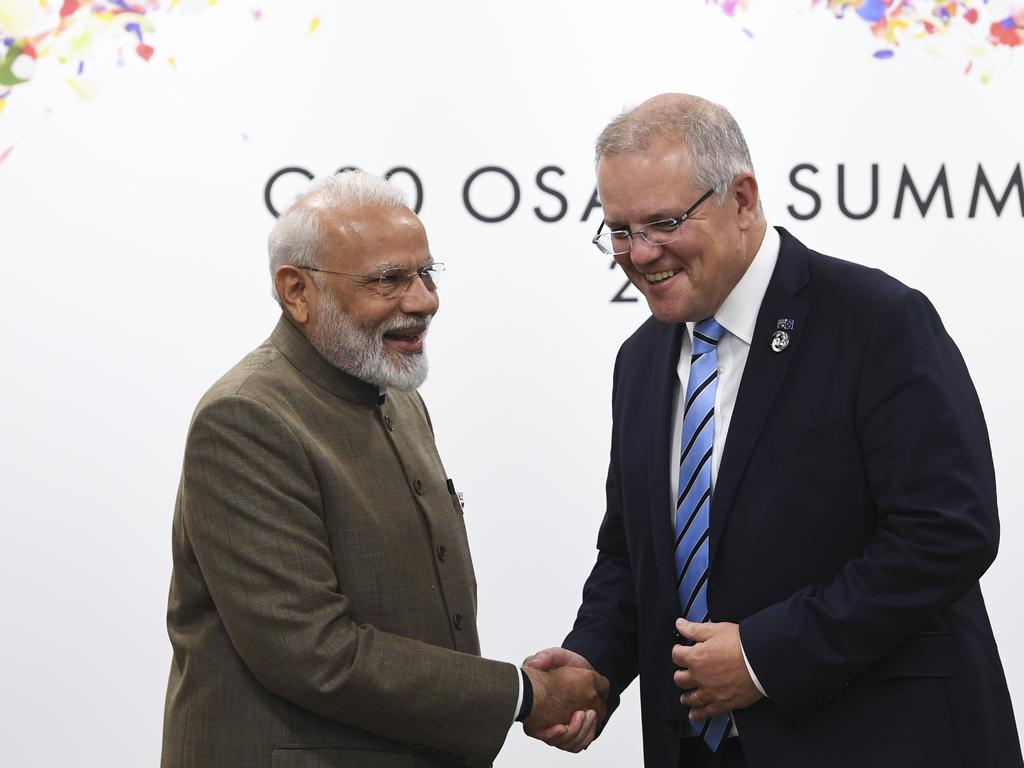

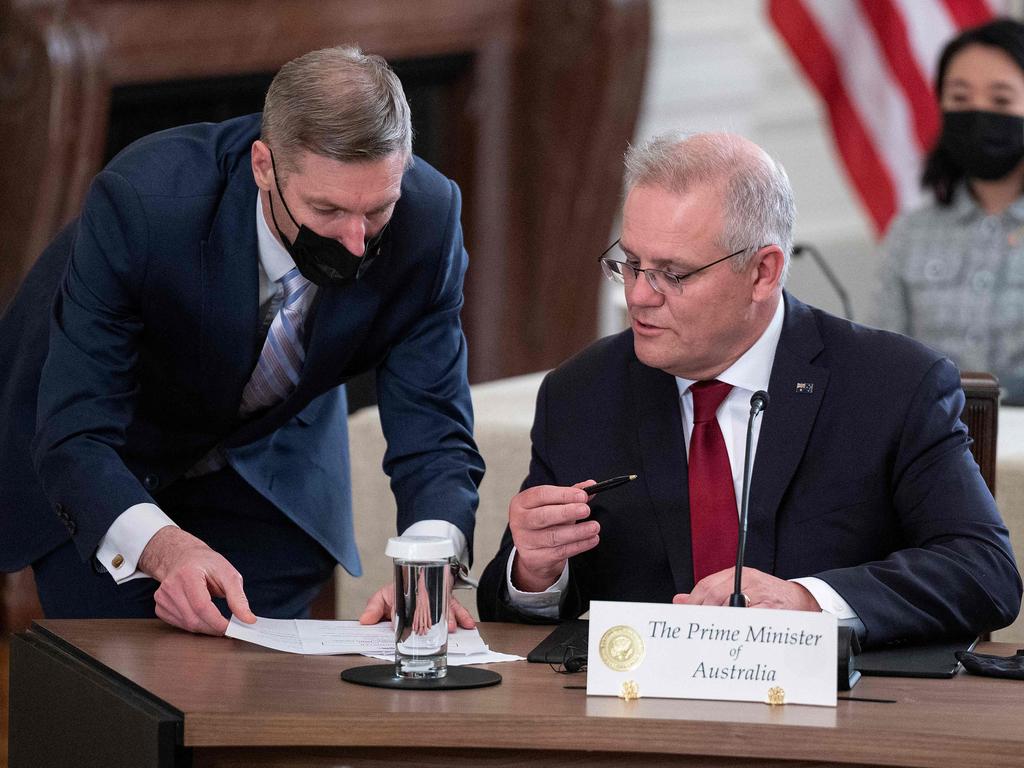
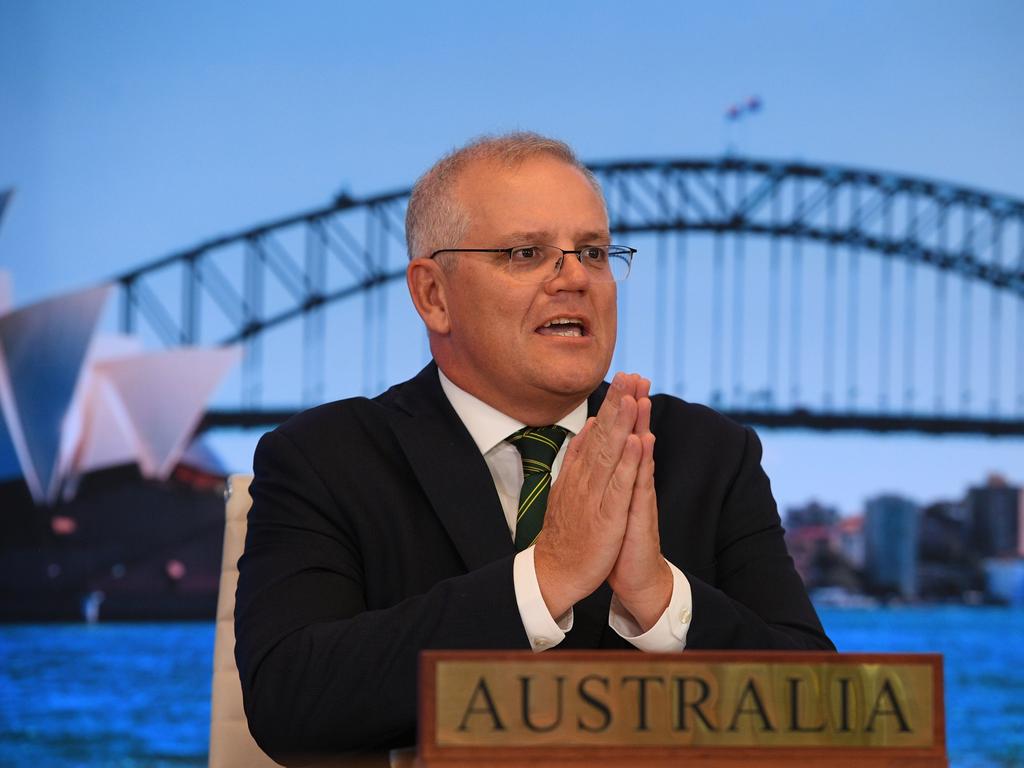


The Quadrilateral Security Dialogue foreign ministers meeting in Melbourne on Friday is one of the more significant diplomatic events to take place on Australian shores, probably at least the equivalent of when Bob Hawke founded the Asia-Pacific Economic Co-operation forum in Canberra in 1989, and perhaps more significant than that. It is immensely important to Australian security and the whole future of our region.